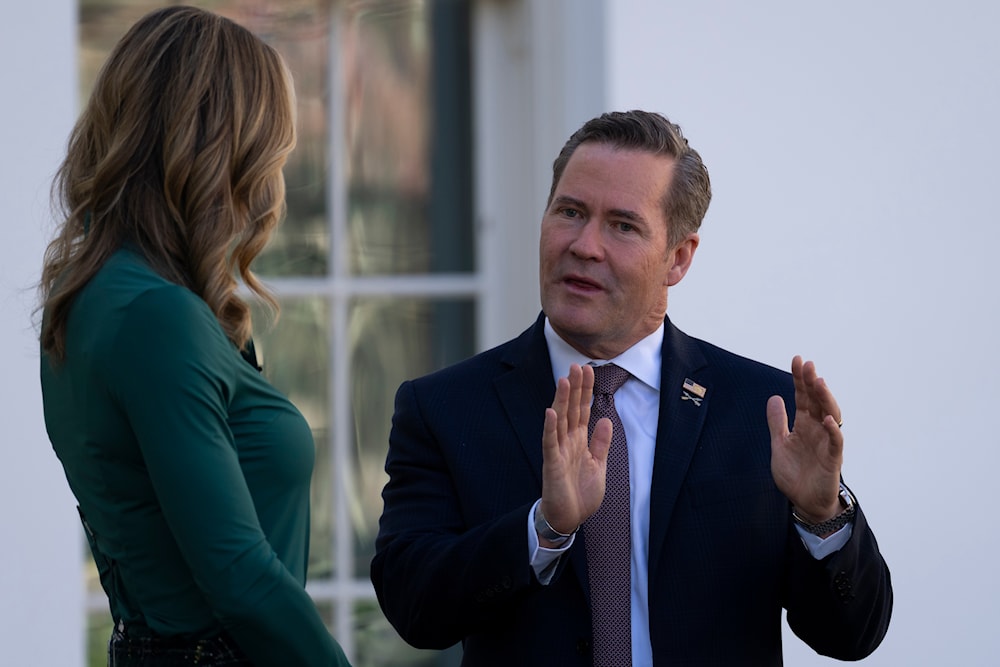Waltz takes responsibility for Signal leak, Pentagon diverts attention
National Security Adviser Mike Waltz takes responsibility for accidentally adding a journalist to a Signal chat about a US attack on Yemen.
-

White House National Security Advisor Mike Waltz, right, speaks with Fox News host and President Donald Trump's daughter-in-law, Lara Trump, left, at the White House in Washington, on March 19, 2025. (AP)
National Security Advisor Mike Waltz has accepted full responsibility for creating the Signal group chat in which sensitive details about a planned US attack on Yemen were shared with a prominent journalist, stressing during a Tuesday appearance on Fox News, "We made a mistake. We're moving forward."
Waltz acknowledged that he was responsible for mistakenly adding Jeffrey Goldberg, editor-in-chief of The Atlantic, to the chat and clarified that it was not a staffer's error.
He explained that he intended to add a different number to the chat, but Goldberg's contact appeared under a different name, adding that he had never met or communicated with Goldberg, saying, "This one in particular, I've never met, don't know, never communicated with."
President Donald Trump defended Waltz, attributing the issue to the app itself and stating, "I don't think he should apologize. I think he's doing his best," adding that the team is investigating how a journalist ended up in the Signal group chat.
Pentagon warns the app was the target of hackers
Days after the leak, a Pentagon-wide advisory cautioned on Tuesday against using the app, even for unclassified information.
"A vulnerability has been identified in the Signal Messenger Application," begins the department-wide email, dated March 18 and obtained by NPR.
The memo continues, "Russian professional hacking groups are employing the 'linked devices' features to spy on encrypted conversations." It notes that Google has identified Russian hacking groups that are "targeting Signal Messenger to spy on persons of interest."
A Signal spokesperson stated that the Pentagon memo does not concern the app's security but rather advises users to be cautious of "phishing attacks", where hackers attempt to access sensitive information through impersonation or other deceptive tactics.
Read next: White House defends Trump officials over Yemen strike chat leak
"Once we learned that Signal users were being targeted and how they were being targeted, we introduced additional safeguards and in-app warnings to help protect people from falling victim to phishing attacks. This work was completed months ago," said Signal spokesman Jun Harada.
The Pentagon's March 18, 2025, memo states, "Please note: third-party messaging apps (i.e Signal) are permitted by policy for unclassified accountability/recall exercises but are NOT approved to process or store nonpublic unclassified information."
The encrypted Signal app was used by Defense Secretary Pete Hegseth and other senior national security officials.
A 2023 Defense Department memo banned the use of mobile apps for handling even "controlled unclassified information," which is far less sensitive than details about ongoing military operations.
There is little precedent for high-level officials from defense, state, intelligence, and national security sharing such sensitive military information through a platform known to be unsecured.

 3 Min Read
3 Min Read










